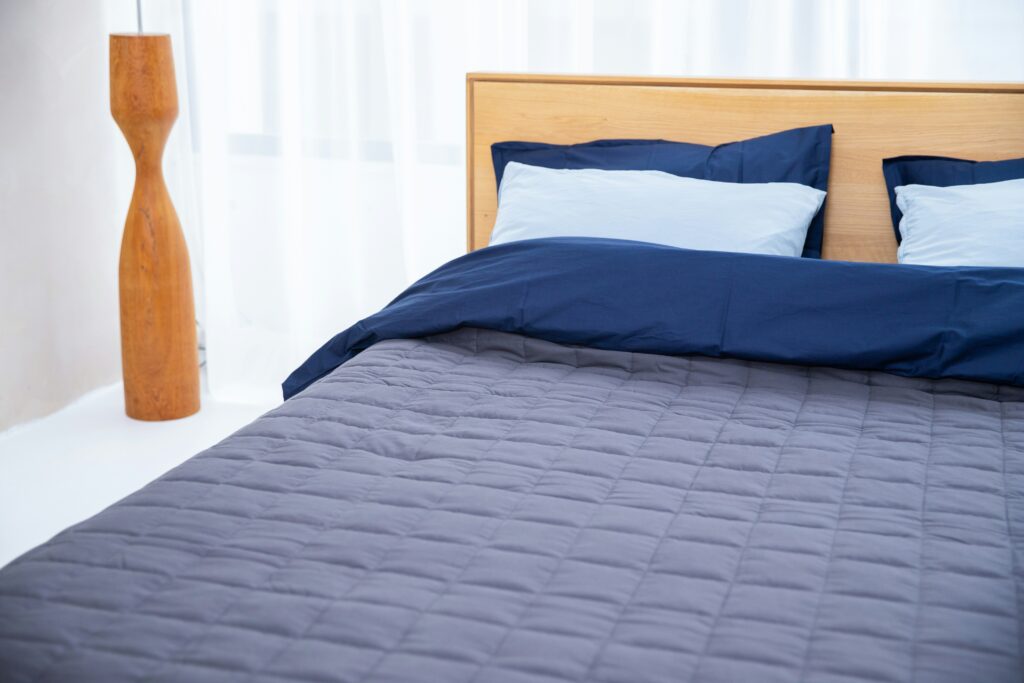We spend about a third of our lives sleeping, so the cleanliness of our bed sheets is more important than you might think. Yet, many of us overlook this simple aspect of our hygiene routine. But how often should you actually change those sheets? And why do some materials, like bamboo bed sheets, make it easier than others? In this guide, we’ll explore the ins and outs of sheet-changing habits, highlight the benefits of bamboo bed sheets, and share tips on keeping your bed a clean haven.
The Science Behind Sheet Changing
Bed sheets can harbor a range of unwanted guests, including dust mites, allergens, and bacteria. These microscopic organisms thrive in the cozy environment of our beds, feeding on dead skin cells and other organic matter. Frequent sheet changing can help minimize their numbers and keep your sleeping space healthier.
Regularly changing your bed sheets not only reduces the accumulation of allergens but also helps prevent skin issues, such as acne and irritation. Clean sheets can make a significant difference in the quality of your sleep, leaving you feeling refreshed and revitalized each morning.
For those with allergies or respiratory issues, changing bed sheets frequently is essential. Allergens can build up over time, worsening symptoms and affecting overall sleep quality. By establishing a regular sheet-changing routine, you can create a more comfortable and hygienic sleeping environment.
Factors Influencing Sheet Changing Frequency
How often you should change your bed sheets depends on several factors, including personal habits, health conditions, and environmental factors. Understanding these variables can help you determine the optimal frequency for your specific situation.
Personal hygiene plays a key role in determining how often to change your sheets. If you shower before bed and wear clean pajamas, you might be able to stretch the time between changes. However, if you tend to sweat at night or share your bed with pets, more frequent changes are recommended.
Environmental factors, such as humidity and temperature, can also impact the ideal sheet-changing frequency. In warmer, more humid climates, sheets can become damp and attract more bacteria, necessitating more frequent changes. Conversely, in cooler, drier environments, you may be able to change your sheets less often.
The Role of Lifestyle and Health
Your lifestyle and health status can also influence how often you need to change your bed sheets. For example, if you exercise regularly and sweat heavily, you may need to change your sheets more frequently to maintain a clean and comfortable sleeping environment.
Individuals with certain health conditions, such as allergies or asthma, may require more frequent sheet changes to minimize exposure to potential triggers. Similarly, those with skin conditions, like eczema or acne, can benefit from a more diligent sheet-changing routine to prevent irritation and promote healing.
Nighttime habits, such as eating in bed or allowing pets to share your sleeping space, can also impact how often you should change your sheets. These activities can introduce additional dirt, bacteria, and allergens, making more frequent changes necessary.
A Guide to Bedding Materials
The type of material your sheets are made from can greatly impact their longevity and the frequency with which they need to be changed. Some materials, like bamboo, offer unique benefits that make maintaining a clean bed easier and more convenient.
Bamboo bed sheets have become increasingly popular due to their exceptional breathability and moisture-wicking properties. These qualities help keep your bed fresh and dry, reducing the need for frequent changes. Bamboo sheets are also hypoallergenic, making them an ideal choice for allergy sufferers.
Cotton is a classic choice for bed sheets, known for its softness and breathability. However, cotton sheets can trap moisture and odors, requiring more frequent changes to maintain cleanliness. Opting for high-quality, tightly woven cotton can help extend the time between changes.
Spotlight on Bamboo Bed Sheets
Bamboo bed sheets have gained a reputation for being incredibly soft and comfortable, rivaling even the finest cotton sheets. This luxurious feel, combined with their natural antimicrobial properties, makes bamboo sheets a top choice for maintaining a clean and inviting sleep environment.
One of the key benefits of bamboo bed sheets is their ability to regulate temperature. Their breathable nature helps wick away moisture and heat, keeping you cool in the summer and warm in the winter. This makes them an excellent option for those who struggle with temperature regulation during sleep.
In addition to their comfort and practicality, bamboo bed sheets are an eco-friendly choice. Bamboo is a highly sustainable resource, requiring less water and pesticides than traditional cotton. Choosing bamboo sheets can help reduce your environmental impact while enjoying a cleaner, more comfortable bed.
Establishing a Sheet-Changing Routine
Creating a consistent sheet-changing routine can help ensure your bed remains a clean and healthy place to rest. By incorporating this habit into your regular cleaning schedule, you’ll be more likely to stick to it and enjoy the benefits of a fresh bed.
Start by setting a schedule that works for you, taking into account your personal habits and living environment. For most people, changing bed sheets once every one to two weeks is sufficient. However, it’s essential to adjust this frequency based on your specific needs and circumstances.
To make the process easier, keep a few extra sets of sheets on hand. This allows you to quickly swap out dirty sheets for clean ones without having to wait for laundry day. Consider investing in high-quality sheets, like bamboo, to further enhance your sleep experience.
Tips for Maintaining Clean Sheets
In addition to establishing a regular sheet-changing routine, there are several steps you can take to keep your bed sheets clean and fresh between changes. These simple habits can help prolong the life of your sheets and ensure your bed remains a welcoming space.
First, make a habit of showering before bed to remove dirt, sweat, and oils from your skin. This will help keep your sheets cleaner for longer, reducing the need for frequent changes. Additionally, wearing clean pajamas or nightwear can further minimize the transfer of grime to your sheets.
Consider using mattress and pillow protectors to create an additional barrier between your body and bedding. These protective covers can help prevent allergens, bacteria, and dust mites from accumulating, making it easier to maintain a clean bed.
The Environmental Impact of Sheet Changing
While maintaining a clean bed is essential for your health and well-being, it’s also important to consider the environmental impact of frequent sheet changing. Washing and drying bed sheets can consume a significant amount of water and energy, contributing to your household’s carbon footprint.
To minimize the environmental impact of your sheet-changing routine, consider washing sheets in cold water and line-drying when possible. Using eco-friendly laundry detergents can also help reduce the release of harmful chemicals into the environment.
Opting for sustainable bedding materials, like bamboo, can further mitigate your environmental impact. Bamboo requires fewer resources to produce than traditional cotton, making it an eco-friendly choice for conscientious consumers.
Balancing Cleanliness and Comfort
Striking the right balance between cleanliness and comfort is key to maintaining a healthy and inviting sleep environment. By considering factors like material, personal habits, and environmental impact, you can create a sheet-changing routine that works for you and supports your overall well-being.
Remember that cleanliness is essential, but comfort should not be overlooked. A clean bed is important for promoting restful sleep, but it’s also crucial to choose bedding materials that feel comfortable and inviting. Bamboo sheets can offer the perfect combination of both.
Ultimately, the goal is to create a sleep environment that supports your health, comfort, and lifestyle. By establishing a thoughtful sheet-changing routine, you’ll be well on your way to enjoying a cleaner, more restful night’s sleep.
The frequency with which you change your bed sheets is more important than you might think. By understanding the factors that influence sheet-changing habits, you can create a routine that promotes cleanliness, comfort, and overall well-being.
Don’t overlook the benefits of bamboo bed sheets, which can make maintaining a clean bed more manageable while offering an eco-friendly and luxurious sleep experience. By taking these steps, you’ll be well on your way to enjoying a healthier, more restful night’s sleep.



